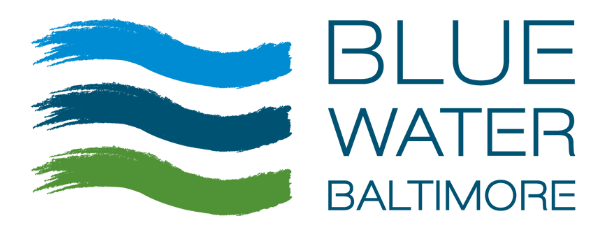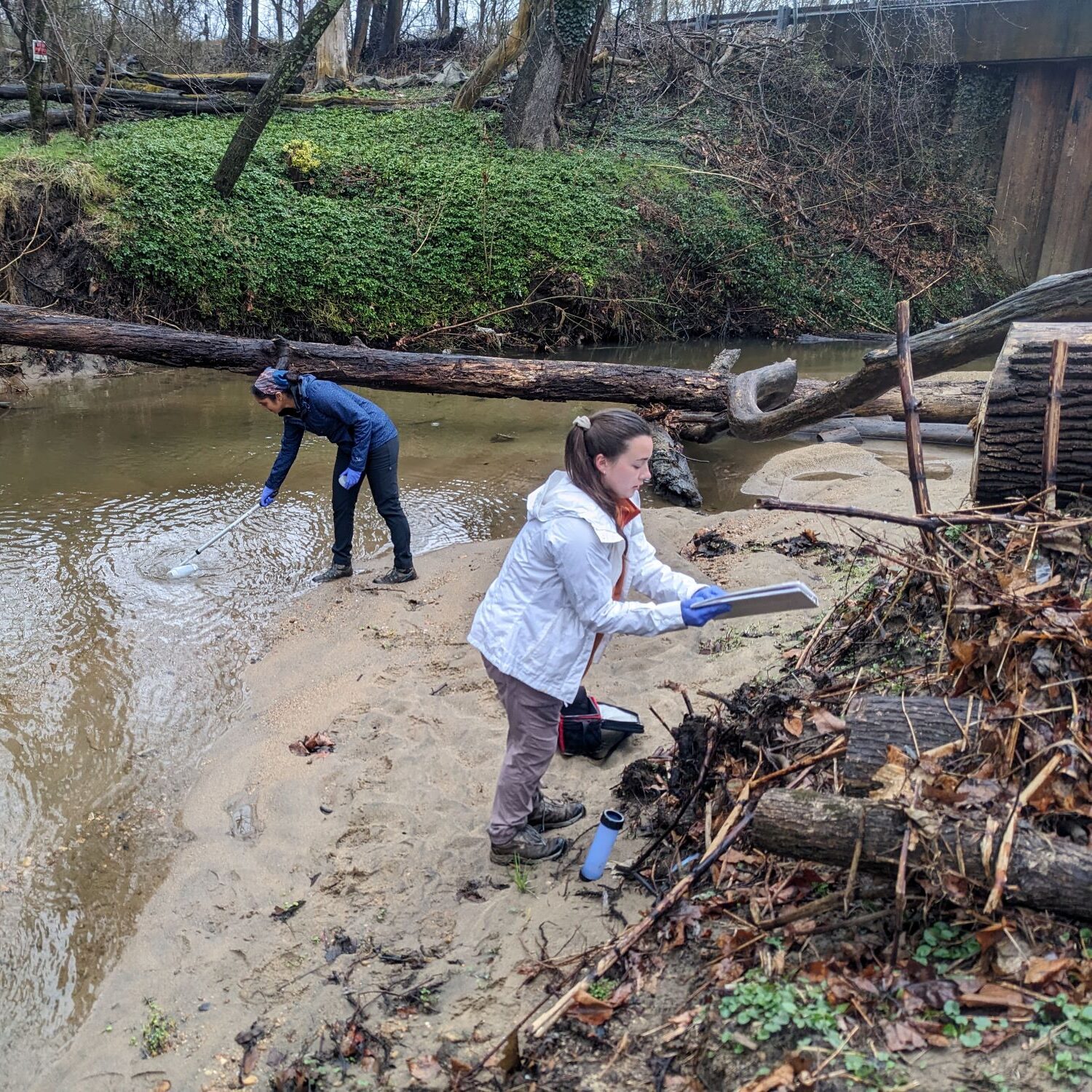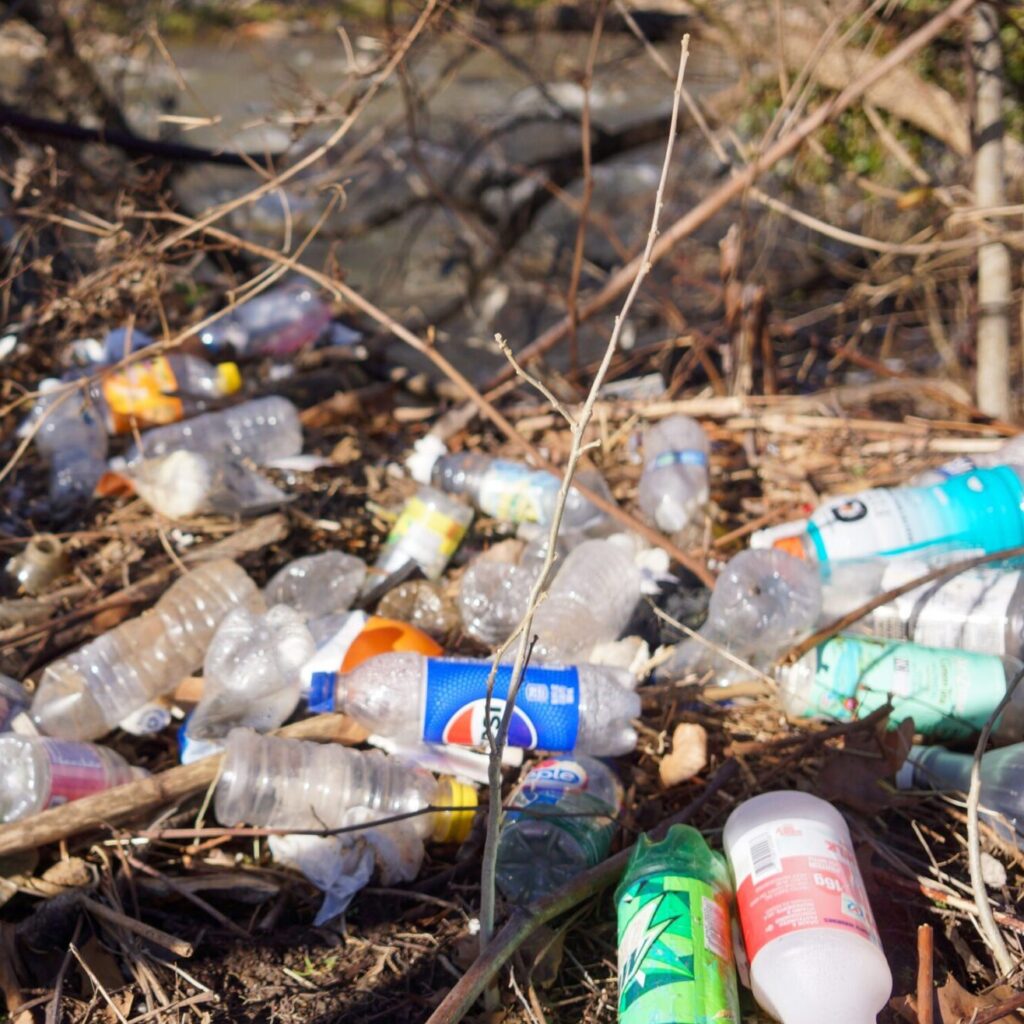Stand up for Clean water
Blue Water Baltimore works to advance policies and regulatory actions that protect and improve the health of local waterways and surrounding communities while amplifying local voices, centering equity, and building a powerful movement for clean water.
If you support a clean environment and strong, healthy communities, join our advocacy efforts today!
Sign up for advocacy alerts to stay informed and take action.
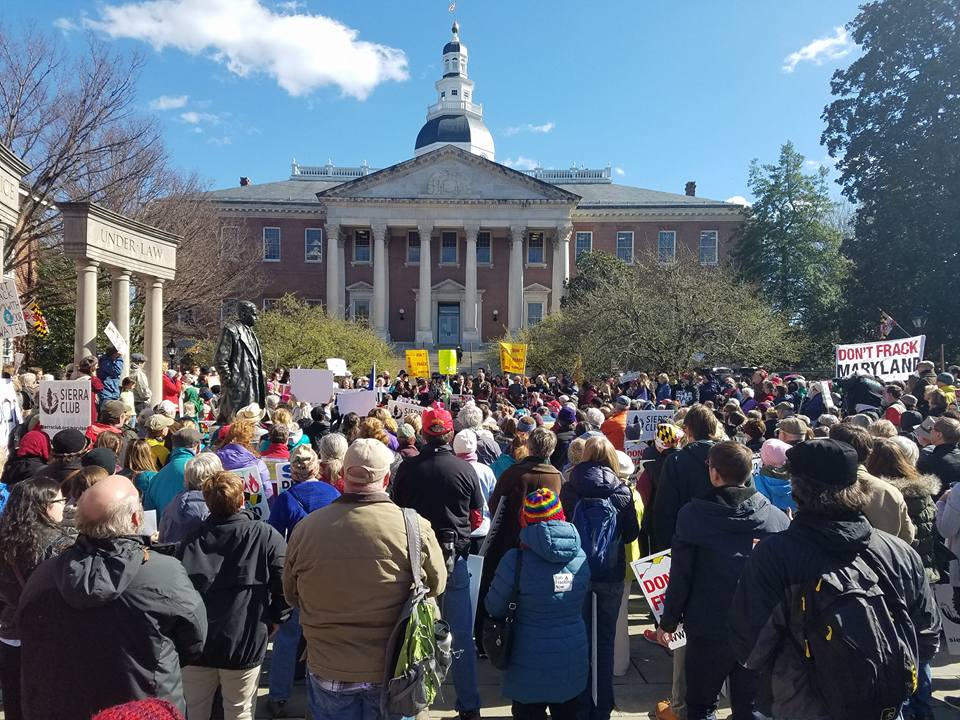
How to take a stand for clean water
Want to learn more about local water policy? Looking for actions to take in support of clean water and strong communities?
Contact Barbara Johnson, BJohnson [AT] bluewaterbaltimore.org
For the 2024 legislative session, which ends April 8, we are focusing on three bills we hope will pass in the General Assembly. Please take a moment to add your name to the petitions we and our partners have put together. In Maryland, a bill must be first introduced (first reading) in one of the chambers (House or Senate) before being sent to the relevant committee, where it is considered by a smaller group of legislators. They send the bill (with any amendments) back to the main chamber, where it gets a second reading and any amendments from the larger body. Then a floor vote is held (third reading) before the bill is sent to the other chamber to complete the same process. Many bills are “cross-filed” in both chambers at the same time, to make the process faster. Click the bill number beneath the title to see where in the process these bills are.
We also testified before committees to support establishment of a Confined Aquatic Disposal Task Force, and recommended passage of a bill on the Environment-Impact of Environmental Permits & State Agency Actions (with amendments).
To make the strongest impact on our target watersheds (Jones Falls, Gwynns Falls, Baltimore Harbor, and Herring Run), BWB primarily engages in water advocacy at the local level in Baltimore City and County. These are our current priorities in Baltimore City:
Preventing Residential Sewage Backups
Sewage backups are a big problem in Baltimore City. When heavy rain overwhelms Baltimore’s aging pipes, sewage has no place to go but up and out into people’s basement floor drains, toilets, showers, and washing machines. Backups also occur during dry weather for a variety of reasons, mainly because the City’s old, cracked pipes deteriorate and eventually collapse over time as a result of poor maintenance. These backups happen thousands of times each year, put residents’ health, homes, and livelihoods at risk, and disproportionately affect Black residents in a clear example of environmental injustice.
We’re collaborating with coalition partners and allies on the City Council to expand the City’s two support programs for residents facing sewage backups. In 2021, DPW conducted a feasibility study about expanding the Expedited Reimbursement Program (ERP) and the Sewage Onsite Support (SOS) program and recommended against program expansion.
In October 2022, we released a joint report with Clean Water Action
- Learn more about sewage backups and the City’s support programs in our joint report with Clean Water Action.
- If you’ve experienced a backup, report it through our confidential form and complete this survey to let us know if you reported the backup to the City and if you received assistance.
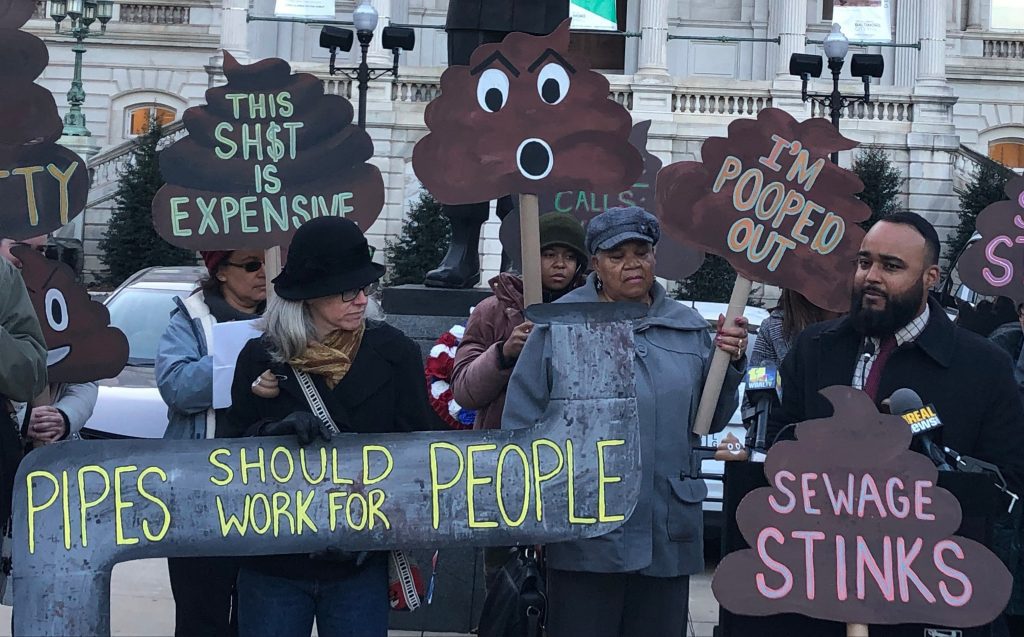
Fighting Climate Change
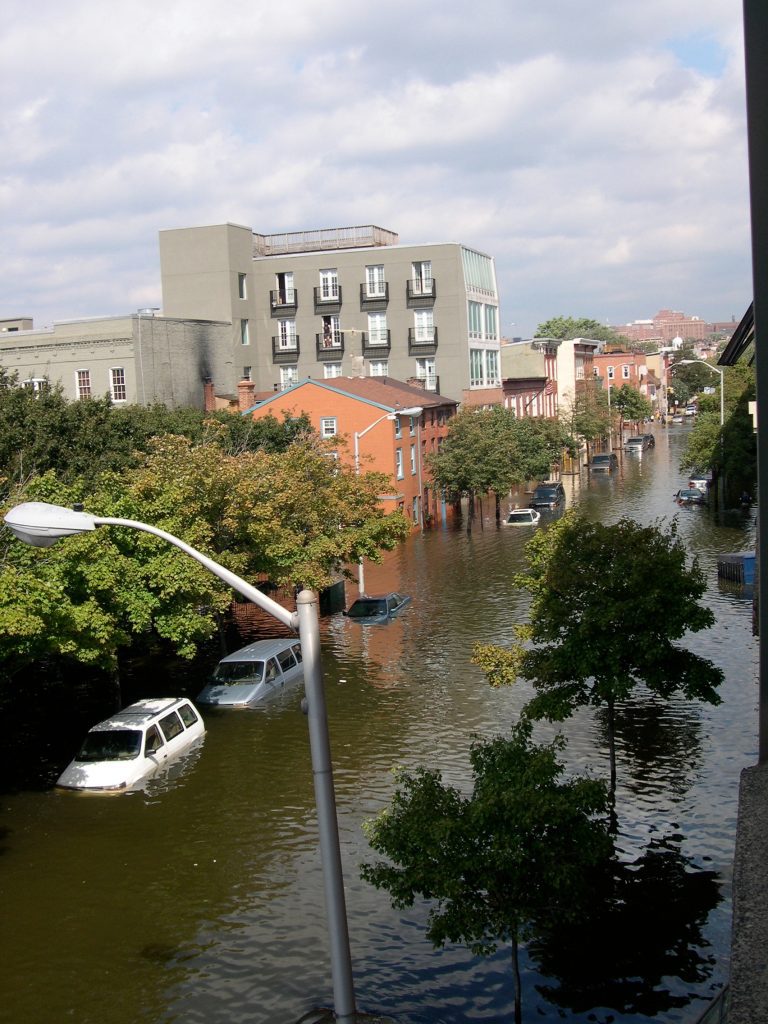
From raw sewage backing up into peoples’ basements during heavy rain to the urban heat island effect exacerbating hot temperatures, climate change poses significant risks to Baltimore’s communities, waterways, and environment.
Last year, we worked with coalition partners and Councilman Mark Conway to pass Ordinance 21-0161 requiring City government operations to be net-zero by 2045. You can learn more about that bill and the strengthening amendments we advocated for in this blog post.
The Baltimore City Council is still considering two additional bills in Councilman Conway’s “climate package” to help mitigate some of the worst effects of climate change and move the City toward a more sustainable future:
- Procurement – Zero-Emission Vehicles (Ordinance 21-0159) requires the City’s fleet of vehicles to be zero-emission (plug-in hybrids and battery electric cars) by 2040. Watch the January 18th, 2022 hearing here.
- Building Code – Cool Roofs (Ordinance 21-0160) requires reflective, solar, or green roofs on new buildings and additions to existing buildings. Watch the January 13th, 2022 hearing here.
TAKE ACTION! Tell the City Council and Mayor Scott to pass the remaining bills in the climate package!
Expanding Green Stormwater Infrastructure
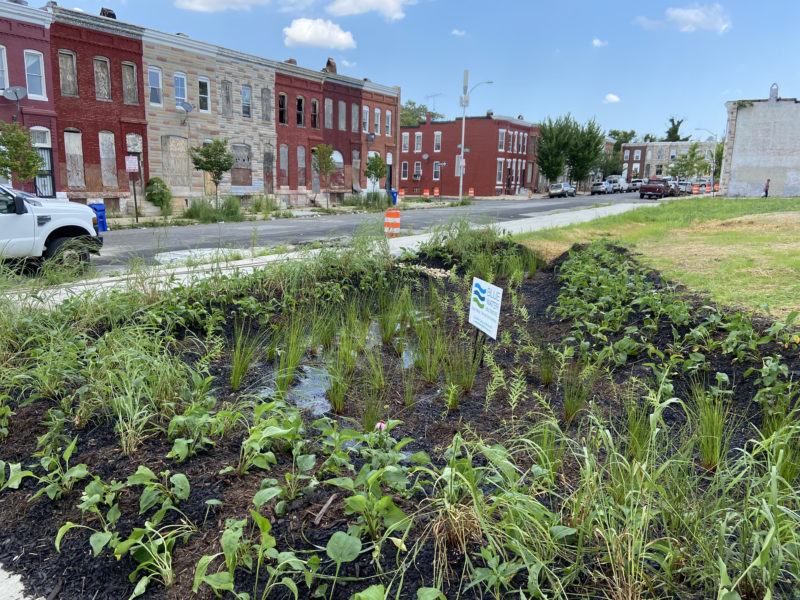
Every time it rains, trash, bacteria, heavy metals, and other pollutants are washed from city streets and roofs into local streams and the harbor. Green stormwater infrastructure (GSI) is a cost-effective way to improve water quality and combat flooding and stormwater runoff. GSI also improves air quality and makes cities cooler during hot summer months. Despite its many benefits, GSI is not implemented widely in Baltimore, particularly in Black neighborhoods.
- If you’ve experienced flooding, we want to hear from you! Report through our confidential form here.
- Learn more about GSI by watching this short video.
- Read our 2019 GSI report outlining several recommendations to improve the process for permitting voluntary GSI projects in the City, including updating the City Code and increasing the portion of Stormwater Fee revenue that supports GSI. Stay tuned for opportunities to advocate for these recommended changes!
Protecting the Tree Canopy
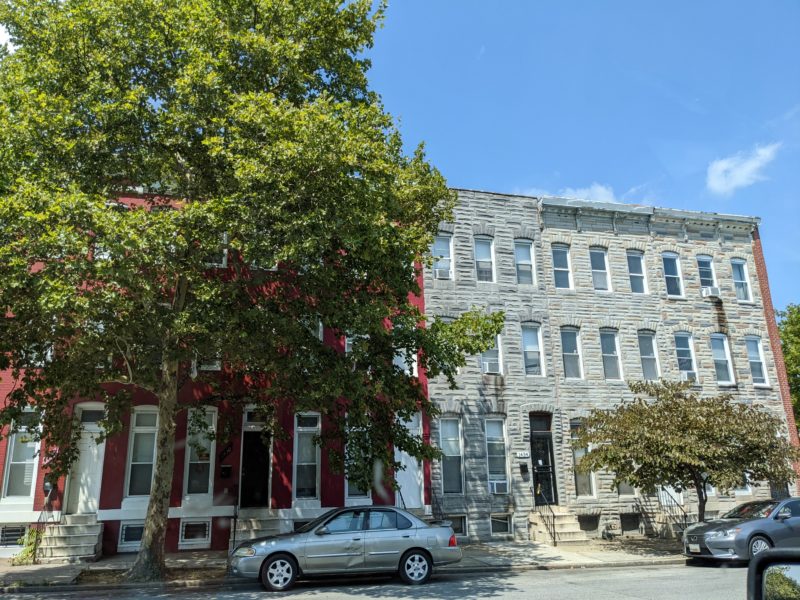
Trees clean our air and water, reduce flooding, lower temperatures and energy bills, improve public health and social cohesion, and beautify our neighborhoods. A healthy city of Baltimore’s size should have a tree canopy of at least 40%, but Baltimore City’s canopy is currently only 27.4%. And what canopy we do have is distributed inequitably, with far fewer trees in formerly redlined neighborhoods across the city.
In order to continue to grow our city’s tree canopy, we must plant more trees — particularly in Black and low-wealth neighborhoods with less tree cover — AND protect our existing trees. We’re working with our nonprofit and government partners on local legislation to increase funding for tree maintenance and to strengthen protections for trees on public and private property in Baltimore City — stay tuned for more updates and information on how to support these efforts in the coming months.
Reducing Harmful Plastic Pollution
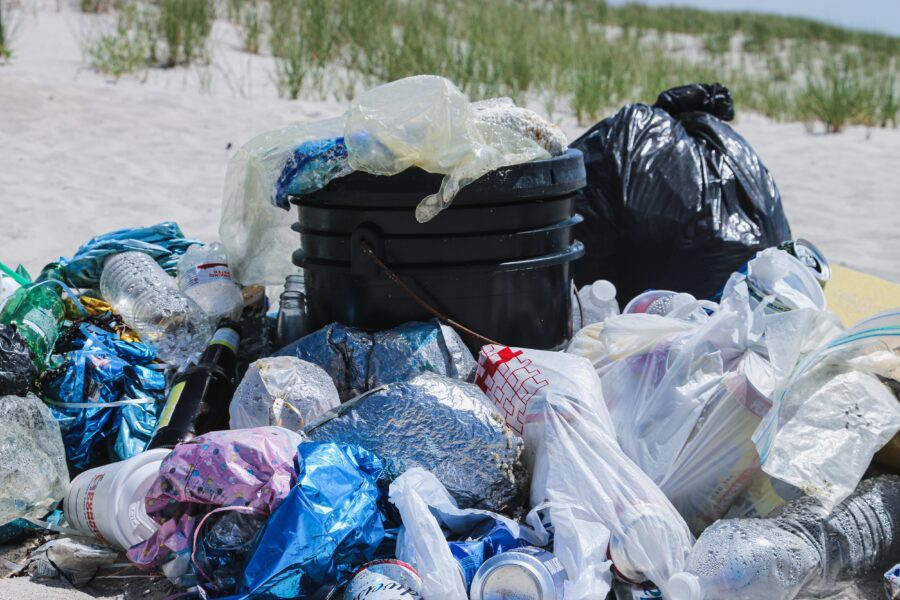
Plastic bags pollute our communities, clog our storm drains and streams, and harm plants and animals. Like other plastic products, plastic bags contribute to greenhouse gas emissions and environmental justice concerns at every stage of production and disposal, and they cannot be effectively or efficiently recycled. Banning single-use plastic bags is an important upstream solution that protects our environment and helps build toward a zero waste future.
The Baltimore County Council passed the Bring Your Own Bag Act (Bill 1-23) on January 6, 2023. This bill will ban plastic bags at many retailers and require stores to charge 5 cents per paper bag to encourage customers to bring their own reusable bags when shopping. Unfortunately, the Council passed an amendment removing an exemption from the 5 cent replacement bag charge for any purchases made with food assistance programs such as SNAP or WIC.
This was a vital equity component to ensure this bill does not have a disparate impact on low-income County residents. This and other weakening amendments point to the importance of passing a strong statewide plastic bag ban in Maryland that will ban all plastic bags regardless of thickness, place a fee on paper bags, and exempt SNAP/WIC purchases from the fee. Stay tuned for opportunities to support a strong statewide plastic bag bill in the future.
Our Mission
Everyone in Baltimore deserves clean waterways.
Join Blue Water Baltimore’s fight to keep Baltimore’s water clean and expand access to greenery to all communities in the city.
There are many ways to help.
